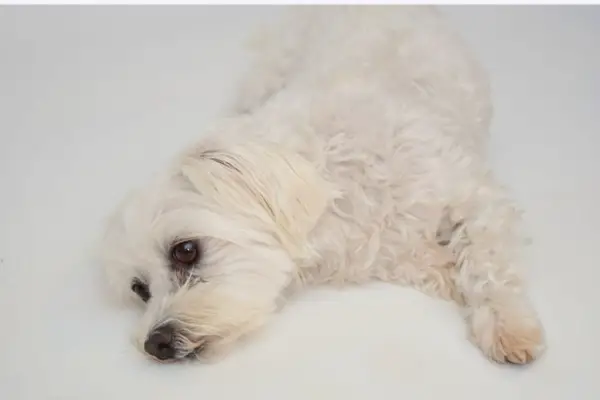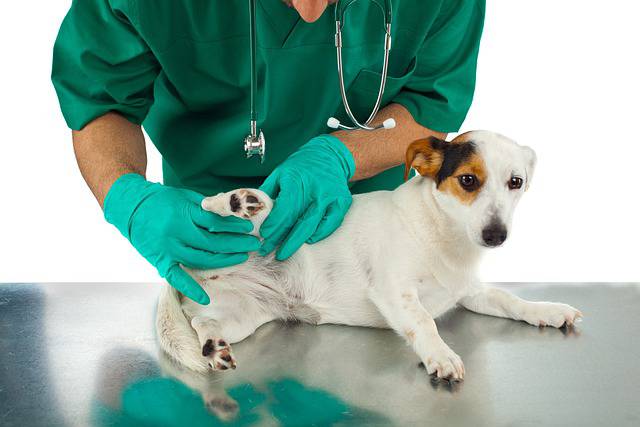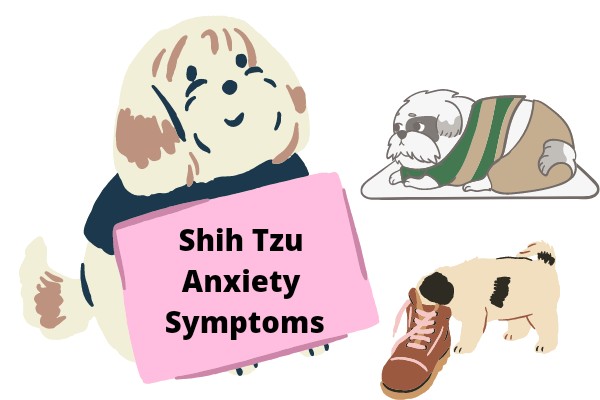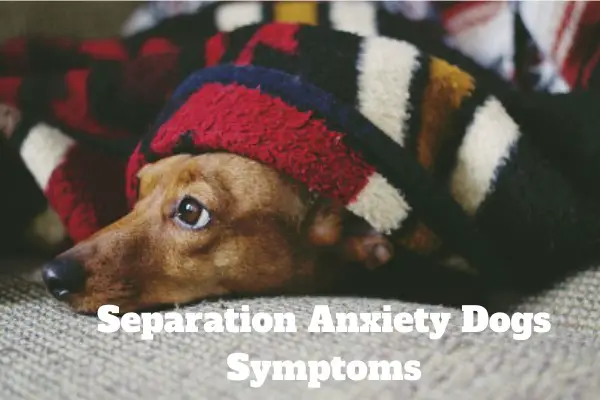Bichon Frise Separation Anxiety: 9 Signs, Causes & Hacks
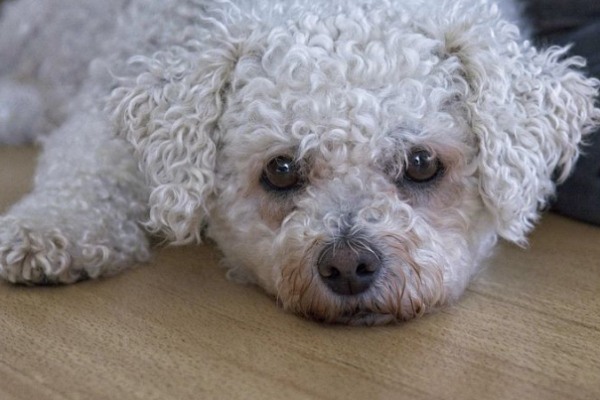
Bichon Frise separation anxiety is one of the most popular behavior problems most Bichon Frise owners encounter, and that is what we will be discussing all through this post.
In this post, we will be discussing the most common signs of separation anxiety in Bichon Frise you should always look out for. Bichon Frise is among the top small dogs for adults.
We will also outline some common ways to prevent or control separation anxiety in Bichon Frise and finally, we will outline all the causes of separation anxiety in Bichon Frise.
Before we proceed to all we will be discussing in this post, let me quickly explain Bichon Frise separation anxiety in a way you will understand!
Bichon Frise Separation Anxiety
When Bichon Frises are removed from their owners for an extended period of time, or even when they are left alone unsupervised for an extended period of time, they develop separation anxiety.
Separation anxiety in Bichon Frise manifests itself in biting, nipping, barking, self-isolation, and destructive chewing.
It’s important to note that leaving a Bichon Frise at home alone might induce separation anxiety, which can be addressed by providing them with a companion and adequate crate training.
Signs of Separation Anxiety in Bichon Frise
The following are some of the most prevalent separation anxiety signals in Bichon Frise:
1. Destructive Chewing
Depression, impatience, stress, and loneliness are the most common reasons for destructive chewing in Bichon Frises, all of which can be induced by separation anxiety.
Something is amiss if your Bichon Frise is chewing everything he sees. It might be a sign of separation anxiety.
People suggest spraying areas where you don’t want your Bichon Frise to chew or hide your belongings, such as computer wires, but I advise you to correct this tendency.
Rather than spraying or masking the problem, why not figure out what’s causing the destructive nibbling and treat it once and for all.
If you want your Bichon Frise to keep away from your valuables or solve the causes for chewing, give him something to chew on.
2. Excessive Barking On Owner’s Departure
Separation anxiety in Bichon Frise can result in excessive barking due to despair, annoyance, stress, tension, and loneliness.
Separation anxiety in Bichon Frises develops over time, however, it can manifest itself within minutes of the owner’s departure, as previously mentioned.
Because he is terrified of being alone, your Bichon Frise may bark excessively when you go to work or somewhere else.
As a result, if your Bichon Frise begins to bark much more than normal when you leave or enter, you should be concerned.
3. Excessive Whining on Owner’s Departure or Arrival
If your Bichon Frise is depressed, terrified, or suffering from separation anxiety, he may whimper at any time, especially when the owner leaves or returns.
Whimpering will almost always be followed by pacing if the stressor is anything like loud noises that your Bichon Frise can’t get away from.
If your Bichon Frise isn’t howling because he has to go outdoors or is in pain, it’s most likely stress or separation anxiety.
When dogs are upset as a result of separation anxiety, their normal whining may become uncontrollable.
It is, however, a clue that something is wrong with your Bichon Frise’s environment.
Separation anxiety can show up in a variety of ways, one of which is excessive whining when the owner leaves or returns.
4. Clinging to Owner on Arrival or Departure
When your Bichon Frise is scared about being separated from you, he will try everything in his power to get out of the home and track you down as you leave.
Your Bichon Frise may hurt himself by slamming his head and teeth against the cage bars in an attempt to persuade him to go because he is afraid of being alone.
If your Bichon Frise tries to flee the house every time you leave, don’t ignore it; it might lead to undesirable behavior.
This is a significant issue since it indicates that your Bichon Frise is afraid of being alone, which can lead to separation anxiety.
5. Unnecessary Digging
One of the most common causes of your Bichon Frise digging up your yard, fence posts, bed, or basement is separation anxiety.
They dig to keep themselves engaged and away from boredom or loneliness when they are bored or have nothing better to do.
As a result, if you return home one day to find your Bichon Frise digging in your yard, basement, bed, or fence base, you must intervene and try to address separation anxiety.
That’s a telltale sign that your Bichon Frise is bored, and ignoring it will only make things worse.
6. Scratching Of Doors Or Walls
Separation anxiety causes tension and grief in Bichon Frises, which can lead to clawing at doors and walls.
If your Bichon Frise has separation anxiety, you’ll notice him clawing the exit door as you leave for work.
You could also see your Bichon Frise scratching at your walls, which is an evident sign of anxiety brought on by being alone.
If you arrive home to find scratches on your walls or doors, it’s an indication of dissatisfaction from your Bichon Frise separation anxiety.
7. Frequent Potty Accidents
Let’s assume your Bichon Frise is entirely housebroken but still has accidents when you leave the house and return home to find them.
This is a telltale sign that your Bichon Frise is worried about you while you’re away, and it will only become worse if not addressed.
Keep an eye on your puppy or adult Bichon Frise if he or she becomes frightened and starts eating his or her own excrement.
Regardless of how distressing this symptom is, you may take actions to avoid it or just treat the underlying cause, which may be a cause for concern.
8. Excessive Hiding
Excessive hiding in Bichon Frises can be caused by a number of variables, the most prevalent of which are separation anxiety and fear.
When a Bichon Frise is worried, he may seek shelter in a small section of the house or a piece of the owner’s clothing that smells like him.
Your dog may spend hours curled up beneath the table or somewhere in the home to urinate himself.
Don’t ignore it if your Bichon Frise begins to hide unnecessarily; instead, try to figure out why.
This is one of the most obvious signs of separation anxiety in a Bichon Frise.
9. Freezing on Owner’s Arrival or Departure
Because he is afraid of being alone, your Bichon Frise freezes or becomes rigid when you get home from work or leave.
Freezing your Bichon Frise all the time can be dangerous to both you and your Bichon Frise since it can cause behavioral issues like biting.
It’s an indication that your Bichon Frise is upset and won’t be able to deal with the situation, which might result in a bite if your Bichon Frise begins to freeze needlessly as you leave.
Small dogs, such as Bichon Frise, frequently freeze when their owners leave or return, which is an indication of separation anxiety that should not be overlooked.
Common causes of Separation Anxiety in Bichon Frise
When Bichon Frises are away from their owners for a lengthy period of time, or even when they are left alone unsupervised by their owners or family members, separation anxiety is a common occurrence.
Having said that, there are a few more minor reasons for separation anxiety in Bichon Frise:
- Feeding timings are always changing.
- The death of a beloved owner.
- Boredom.
- Loneliness.
- It was a traumatic event.
- Fear.
- The environment is always changing.
- Ownership is always changing.
- A change in location or environment is required.
- The owner is always abusing her.
- Bichon Frise’s inability to hear or weak vision.
- Insufficient mental stimulation.
How to Fix or Prevent Separation Anxiety in Bichon Frise
Consult your veterinarian if your Bichon Frise is already experiencing separation anxiety, or set aside time to spend with your Bichon Frise.
Separation anxiety in Bichon Frises can be prevented or reduced in a number of ways, including the ones described below:
1. Counter-Conditioning or Desensitization of your Bichon Frise
Teach your Bichon Frise that there are some advantages to being apart. Begin by leaving him for short amounts of time and progressively increase your time away from him.
If your puppy is already conditioned to go into stress mode when you leave him, consider giving him a high-value reward that he enjoys and that you only use for crucial lessons and rewards.
If you offer him a special treat right before you leave, he could start to look forward to it.
You may also lessen the grief of your puppy’s separation by desensitizing him to the signs that you’re leaving.
2. Invest in Treats Dispensers
There’s no denying that Bichon Frises enjoy goodies; as a result, you may take advantage of this, but only in moderation to avoid obesity.
This is a terrific method to keep your Bichon Frise busy while you’re away from home; Bichon Frises enjoy treats and food, so you can use those to keep them occupied.
Excessive treats might be harmful to a Bichon Frise’s health.
As a result, you’ll need to exercise restraint; you may program the dispenser to deliver your Bichon Frise goodies over a certain amount of time.
Begin the reward dispenser training at home so that the goodies will fall when your dog is left to sit.
He’ll be kept entertained for a while if he gets one gift at a time.
You may try out a few different combos with your dog to determine which one works best for you.
A suggested treat dispenser is available on Chewy, and this one is also available on Amazon.
3. Turn On The Radio Or Television Before Departure
Another common way to help Bichon Frises cope with separation anxiety is to train them to associate peace with watching TV or dog shows.
To assist your Bichon Frise to relax and watch while you’re gone, you may show them a selection of dog shows.
Get as many dog movies as you can and let your dog choose which ones will keep them engaged and quiet.
While you’re occupied with other things, teach your Bichon Frise to sit and watchdog shows on TV.
Your Bichon Frise will like watching animated dog programs as a result of this and will remain calm while you are away.
4. Hire A Dog Sitter
If you’re going to be gone for most of the day, consider hiring a pet sitter for your Bichon Frise.
Depending on your state, agreements, and who will sit your Bichon Frise, a pet sitter for your Bichon Frise will pay between $20 and $35.
Therefore, your Bichon Frise will be visited on a regular basis by the pet sitter while you are away till you return.
5. Make Your Environment Stress-Free for Bichon Frise
Make your Bichon Frise’s environment as peaceful and enjoyable as possible.
While creating a potentially stressful atmosphere for your Bichon Frise, you should carry the same bed, blanket, or mat with you.
Reward your Bichon Frise for soothing acts on the mat on a frequent basis, even if stress levels are low, to teach your Bichon Frise to associate the mat with relaxation.
When they leave the house, go to the vet, or are presented with anxiety triggers, they have a secure place to go.
6. Create a Daily Routine
Make time for you and your Bichon Frise to play, stroll, play games, and eat.
Because your Bichon Frise will always know what to expect, he will be more relaxed.
Your Bichon Frise will never be bored or notice your absence since he will be active for the bulk of the day.
Create and stick to a daily regimen that works for both you and your Bichon Frise, and delegate as much as possible.
If it’s time for a meal, don’t put it off; instead, rehearse until your Bichon is at ease.
If you and your Bichon Frise build a schedule that works for both of you, most of your problems will be alleviated.
7. Get Your Bichon Frise Companion
Bichon Frise is prone to separation anxiety since they were designed to be a human companion and thrive on human interaction.
If you can’t be with your Bichon Frise all of the time, obtaining a second companion pet as soon as possible is one of the greatest, if not the best, ways to prevent separation anxiety.
Your Bichon Frise will be less prone to suffer separation anxiety if you have another pet.
To aid with separation anxiety, you might get a second companion pet for your Bichon Frise.
8. Begin A Crate Training Program
Crate training is a popular puppy training method that can help with a variety of issues, including separation anxiety.
Crate training may give your Bichon Frise a safe, relaxing environment when you’re away for an extended period of time.
The goal is to get the dog to link fun items like chew toys and food-releasing puzzle games with his kennel, so he enjoys spending time there.
When left alone, some dogs feel safer and more at ease, so keep an eye on your puppy’s behavior to see whether his anxiety symptoms improve or worsen.
9. Set up a clear window view
If you live in a busy neighborhood, make sure your Bichon Frise has a good view of the outside world by installing a clear window view.
This enables your Bichon Frise to sit at the window and observe passers-by as well as birds.
To stop your Bichon Frise barking at other dogs from the window, you must socialize them.
With all the above information provided on this page, I hope you now have a better understanding of Bichon Frise separation anxiety!

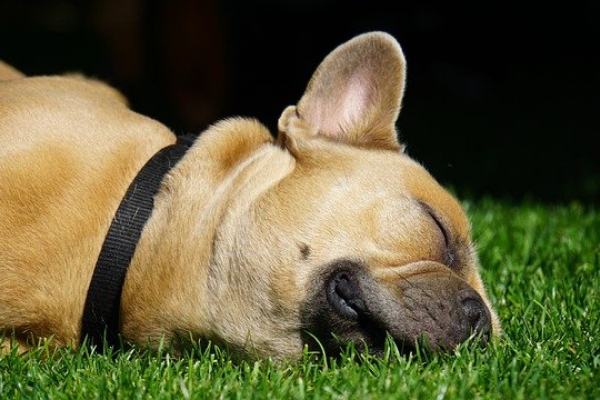
![Hairballs in Dogs [Causes, Signs & Remedies] Hairballs in Dogs](https://petcreeks.com/wp-content/uploads/2023/12/pexels-anna-bondarenko-7391070.jpg)
